Comparison shopping engines (CSEs) give ecommerce merchants the opportunity to attract new customers, increase sales, and go head-to-head against the competition.
In this guide, we’ll explain what comparison shopping engines are, tell you about some of the best platforms available, and show you how to get your products listed.
Table of Contents
- What are price comparison engines?
- How do price comparison sites work?
- 17 top price comparison websites
- The cost of price comparison shopping engines
- Getting products listed on price comparison websites
- What is the best price comparison app?
- What’s the best price comparison site?
- Grow your business with price comparison sites
What are price comparison engines?
Comparison shopping engines are channels for collecting product information, including pricing, from participating retailers and then displaying that collective information on a single results page in response to a shopper’s search query. This lets shoppers compare prices, shipping options, and service from multiple retailers on a single page and choose the merchant that offers the best overall value.
For example, let’s say I’m looking for a Rubik’s Cube and want to see what my options are, or maybe find the best price. I can go to Google Shopping (one of the most popular CSEs around) and initiate a search. Here’s what comes up:
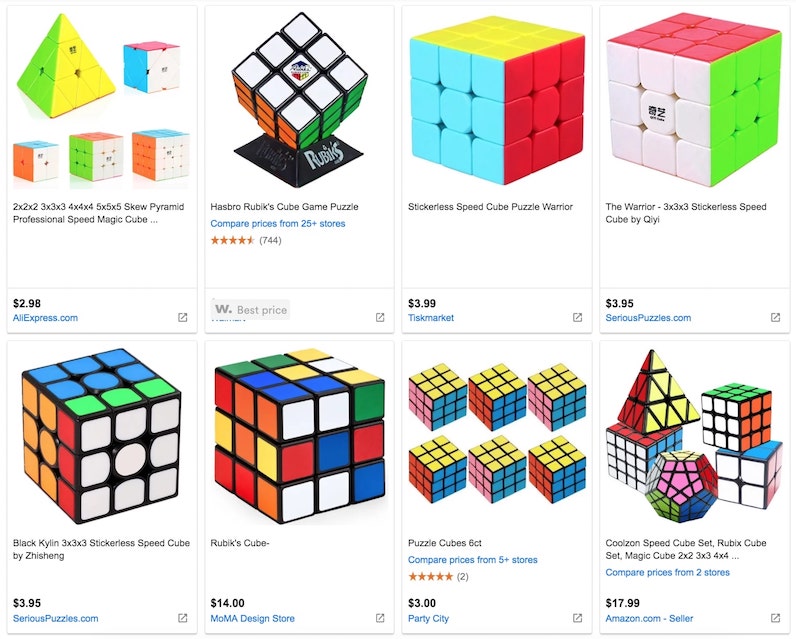
For ecommerce merchants, price comparison shopping engines are an opportunity to put your products in front of very interested buyers. These aren’t people glancing at a virtual storefront like a window shopper at the mall. Price comparison site users typically have already made the decision to buy and are simply looking for the lowest price. With their high intent to purchase, comparison shoppers often are an ideal audience for promoting your products.
How do price comparison sites work?
On the consumer side, price comparison sites work much like a search engine—the difference being price comparison engines will show products side-by-side and how they stack up against one another in terms of pricing. Typical search engines generally serve up straightforward results without sorting by price or showing comparisons.
On the business side, each price comparison site is a little different. Essentially, you pay a certain fee, submit the required content (product photos, URL, price, description, etc.), and list your products. Your products will then show up for relevant searches along with comparable products, ranked by price.
This is helpful for informing your pricing strategy. You don’t want to be priced too much above similar products, but you need to make sure you charge enough to turn a profit.
17 top price comparison websites
- Google Shopping
- PriceGrabber
- Shopping.com
- Shopzilla
- Become
- Bing Shopping Campaigns
- Pronto
- Bizrate
- Amazon Sponsored Products
- Camelcamelcamel
- ShopMania
- BuyVia
- ShopSavvy
- Yahoo Shopping
- Pricepirates
- MyShopping Datafeed
- Idealo
1. Google Shopping
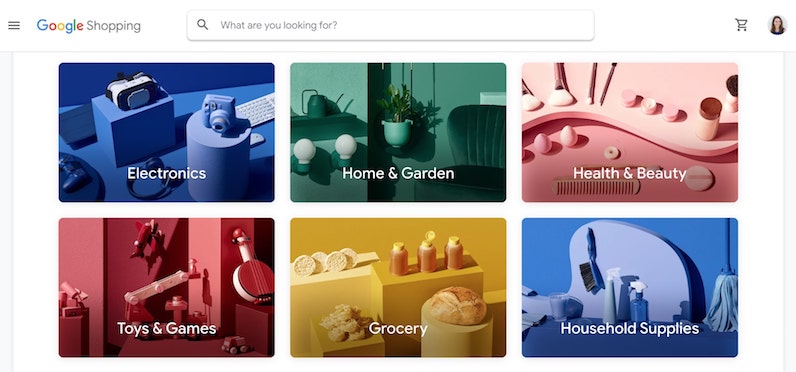
Google Shopping is probably the largest and best-known comparison shopping engine. Products submitted to Google Shopping will also be displayed in standard Google search results and are integrated with Google Ads, the pay-per-click platform.
Google also launched a beta benchmarking tool for product prices on Shopping ads. This tool displays three specific metrics to help you see where you stack up against the competition:
- Average product price: the average price of a product when your ad showed or when your ad was competitive in an auction.
- Benchmark product price: the average click-weighted price for a product across all businesses that advertise that product with Shopping ads
- Benchmark product price difference: the percentage difference between your product’s average product price and the benchmark product price
Free Ebook: Google Shopping for Small Businesses
As one of the world's leading comparison shopping engines, Google Shopping is a great place to promote your business. Discover how to effectively use Google Shopping ads to drive ecommerce sales in this free ebook.
Get the free ebook now2. PriceGrabber
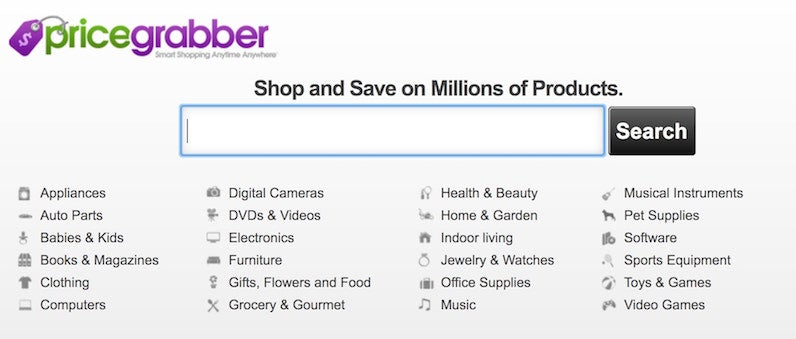
PriceGrabber is owned by Connexity. Listing your products on this platform grants you access to Connexity’s retail performance marketing network, which provides hands-on help with campaign setup and maintenance. Plus, there are no long-term contracts or sign-up fees, so you can pull a product at any time if it’s not generating any revenue.
When you list your products on PriceGrabber, you’ll also be listed on Yahoo Shopping, which is a nice bonus.
3. Shopping.com
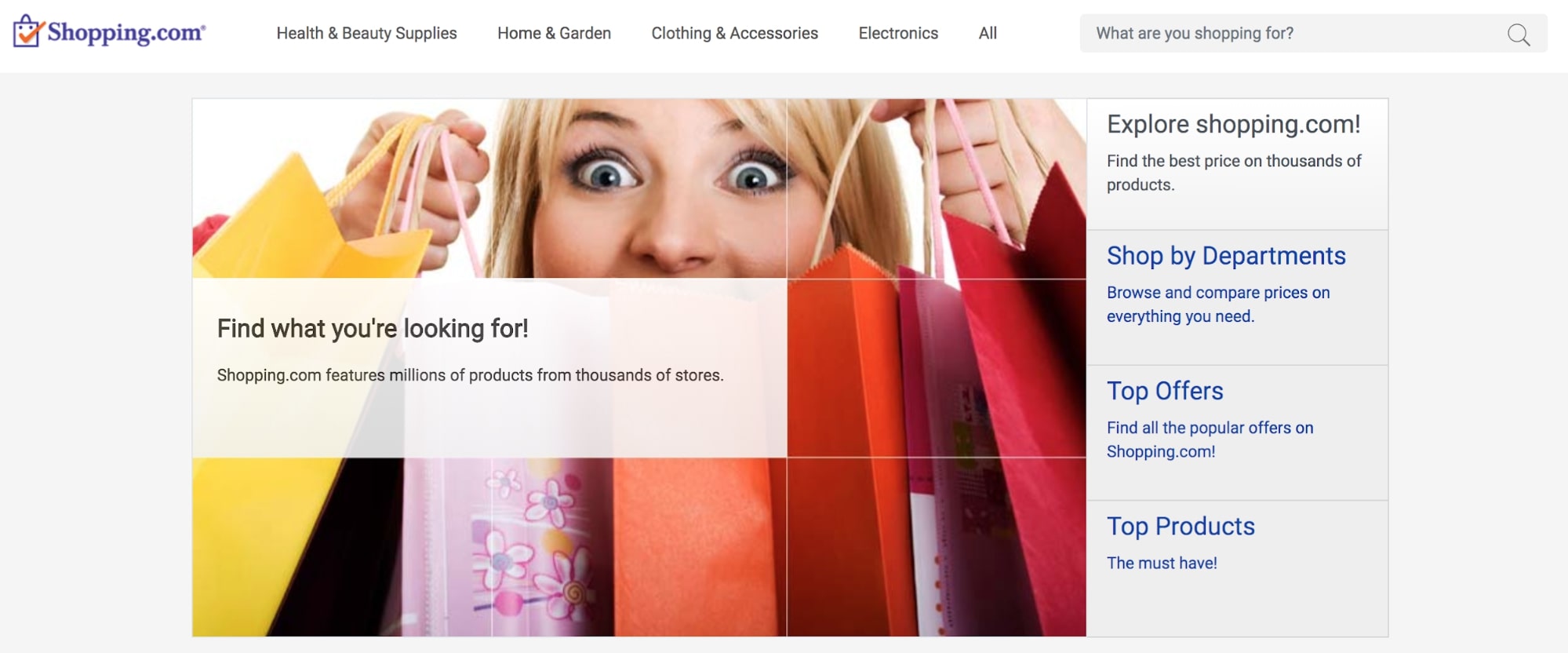
Shopping.com is part of eBay's family of companies and another great channel for putting your products in front of prospective buyers. This price comparison engine also offers version for France, Germany, the U.K., and Italy.
4. Shopzilla
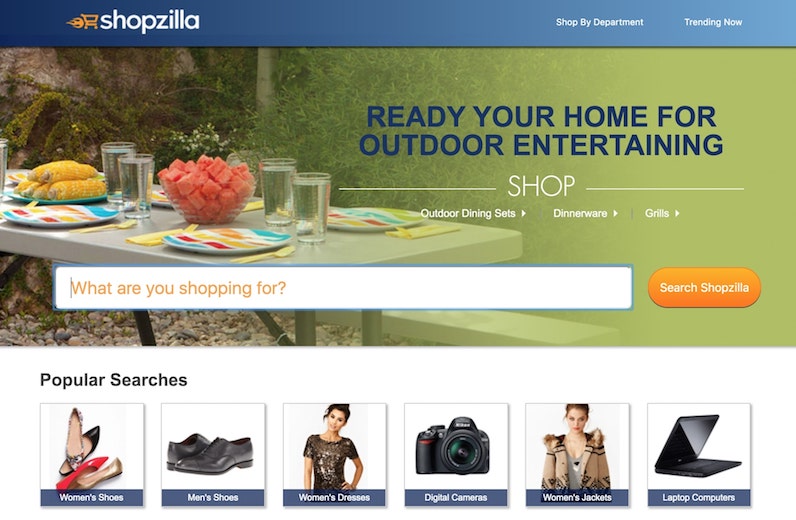
With millions of monthly visitors and a pedigree dating back to 1996, Shopzilla is one of the best choices for ecommerce merchants looking for some extra sales. This comparison shopping engine lists tens of millions of products, so the selection is wide but competition might be tough.
Like PriceGrabber, Shopzilla is a Connexity company, so you get access to its full advertising network.
5. Become
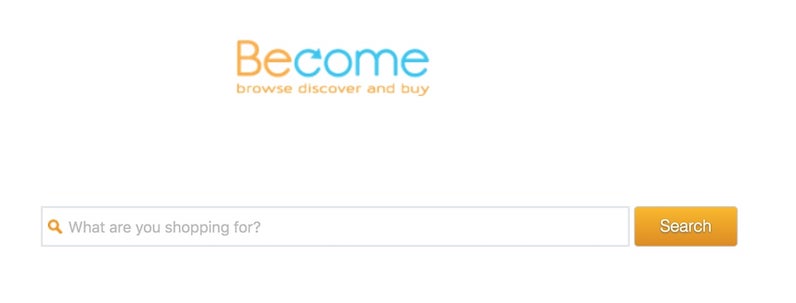
Become is another leader in the CSE space, allowing thrifty shoppers to compare prices, read or write product reviews, and simply search for the best possible online shopping deals and lowest prices.
Free Ebook: Google Shopping for Small Businesses
As one of the world's leading comparison shopping engines, Google Shopping is a great place to promote your business. Discover how to effectively use Google Shopping ads to drive ecommerce sales in this free ebook.
Get the free ebook now6. Bing Shopping Campaigns
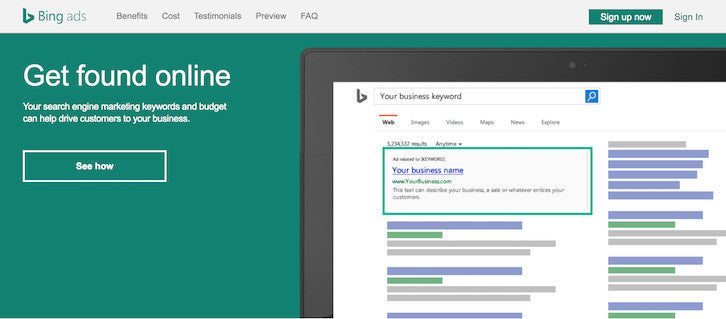
Bing Shopping happens right in the Bing search engine. Microsoft also offers the Shopping Campaigns feature within its advertising suite.
7. Pronto
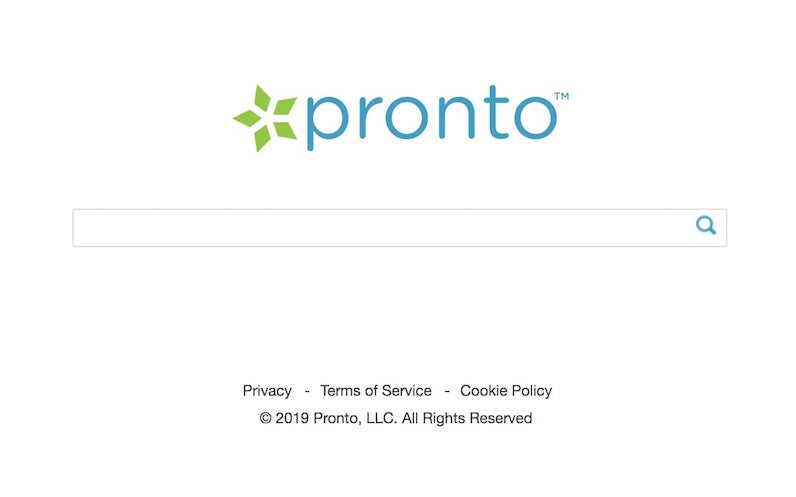
With tens of millions of product listings sorted into various retail verticals, and millions of visitors monthly, Pronto certainly merits consideration for any retailer’s CSE campaigns.
8. Bizrate
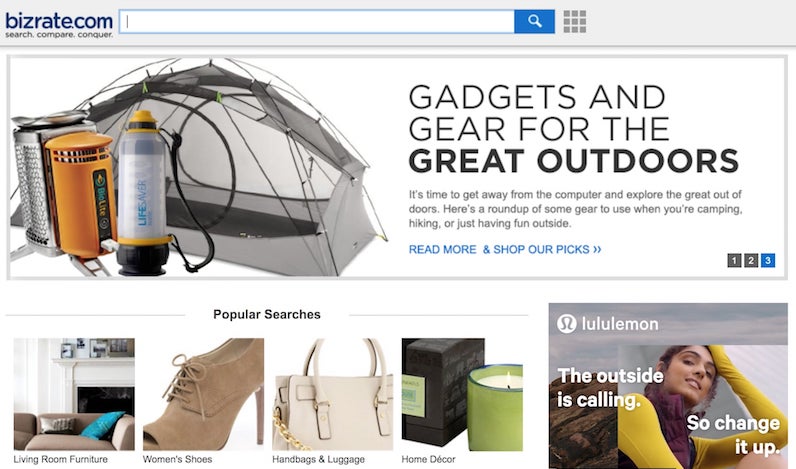
In addition to showing product and price comparisons, Bizrate allows customers to set price alerts for products they’re interested in. Bizrate is also a Connexity company, so merchants get those added benefits.
9. Amazon Sponsored Products
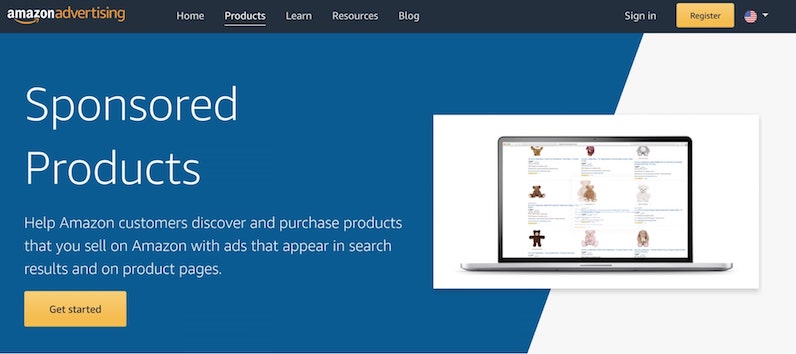
Amazon isn’t technically a comparison shopping engine, but it works in a similar fashion. When you register for Sponsored Products you can upload your products manually or via FTP. Amazon will then create ads for your products using the information provided in your product file. When you set your budget, your ads will go live and you’ll pay per click.
Check out these resources for selling on Amazon:
- How to Sell Your Products on Amazon
- How to Sell on Amazon Using Shopify
- How a Jewelry Business Generates 76.8% of Orders Selling on Amazon with Shopify
10. Camelcamelcamel

Camelcamelcamel actually tracks Amazon product price history over time. Shoppers can see historic pricing and trends. It’s also got a browser extension with the option to add email or Twitter alerts for price drops. Consumers can browse by category or conduct a search for specific products to compare prices.
Camelcamelcamel offers versions of its price comparison tool for the U.S., Australia, Canada, China, France, Germany, Italy, Japan, Spain, and the U.K.
11. ShopMania
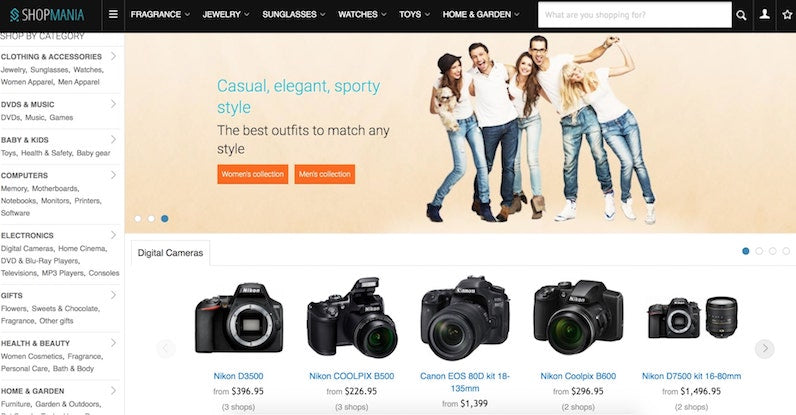
Available in more than 30 countries and with millions of monthly users, ShopMania is a price comparison tool that runs on a pay-per-click model. Consumers browse the categories or conduct a search on the website and you pay each time someone clicks on your product. ShopMania also works with Facebook selling.
To advertise your products on ShopMania, your business must:
- Be a fully functional ecommerce store
- Be legally registered and operating
- Have easy-to-find contact details
- Use the official language and currency of the country where you operate and the ShopMania country you’ve chosen
12. BuyVia
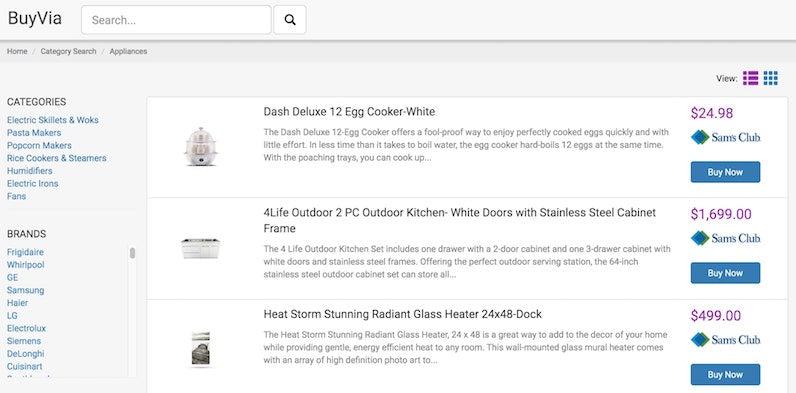
BuyVia is accessible via web browser or mobile app. Like most price comparison tools on this list, BuyVia allows online shoppers to browse products or conduct a search for something in particular and gives them the option to scan bar codes and set alerts for price drops. In addition to price comparison, BuyVia has coupons and promo codes to help shoppers get the best price.
13. ShopSavvy
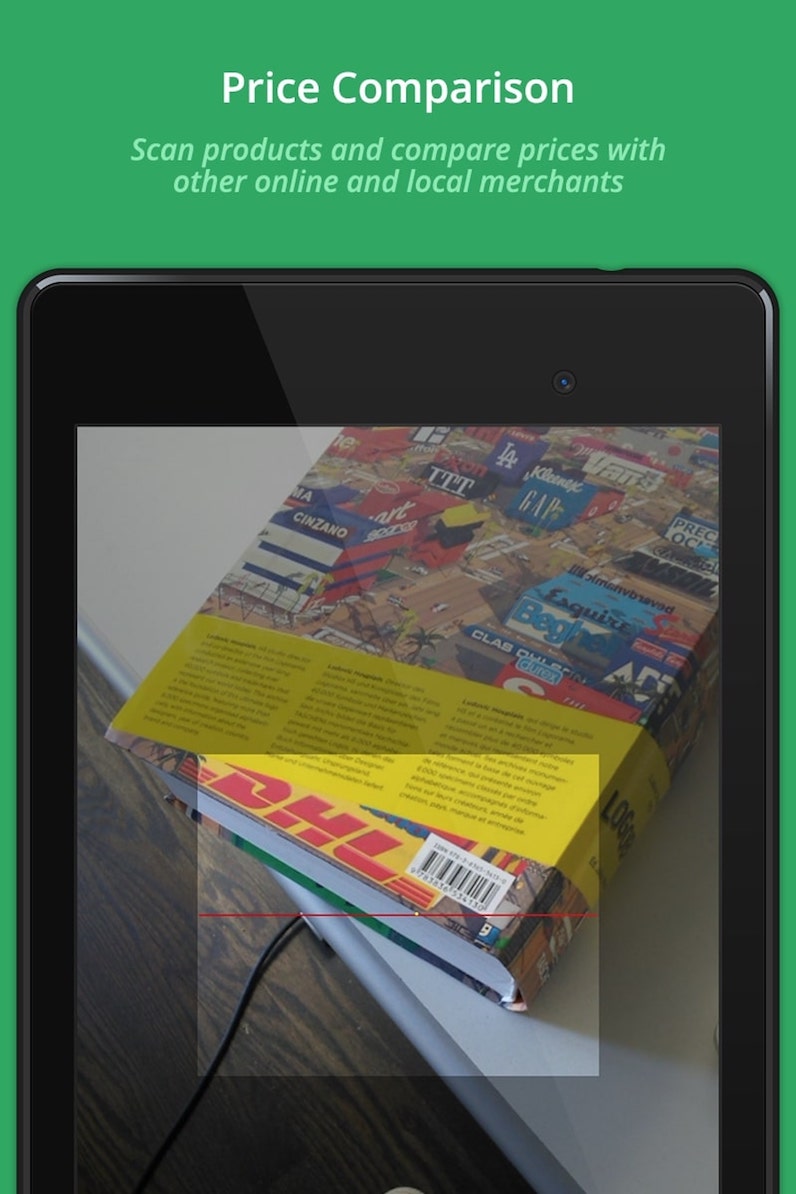
ShopSavvy is one of the apps for price comparison on your phone. Shoppers can either search a keyword or UPC code or scan bar codes. ShopSavvy will show product prices for the same or similar items online or at other local retailers. It can also tell shoppers which stores have the most units in stock, and features a price match tool to help them get the best deal without seeking out the item elsewhere.
14. Yahoo Shopping
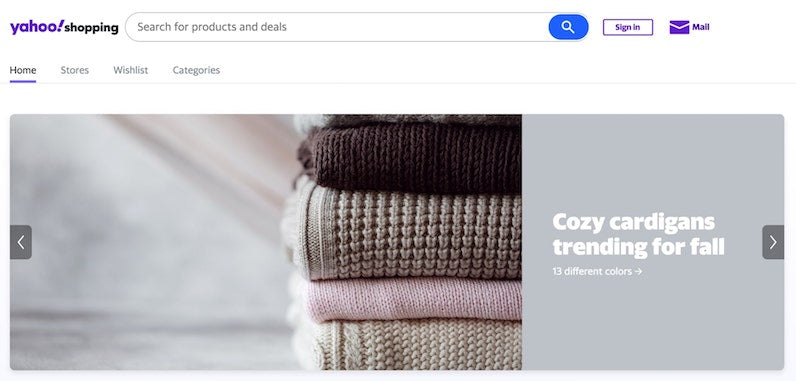
Yahoo Shopping is a price alert tool for online shoppers. Consumers create a wishlist with products they want to track price history for and Yahoo will monitor price changes over time. Yahoo Shopping also features deals for various products and discounts.
15. Pricepirates
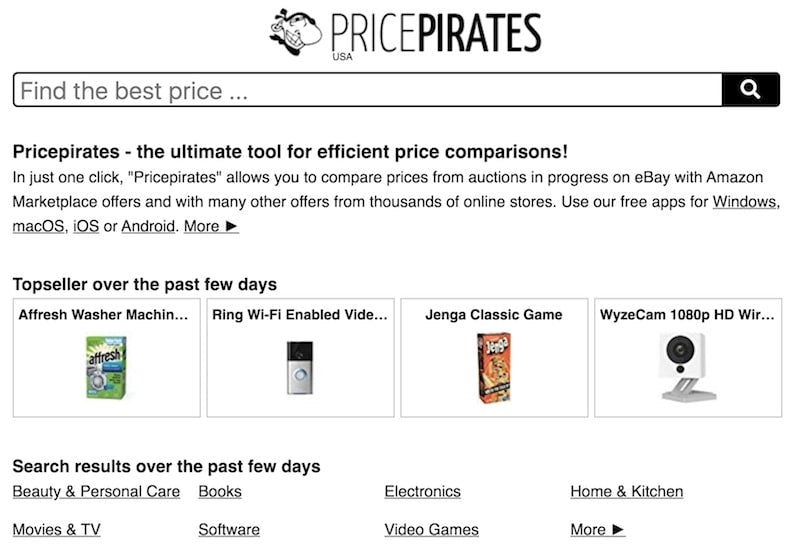
Germany-based price comparison tool Pricepirates also offers versions for the U.S., Austria, Switzerland, and the U.K. Consumers can scan top sellers and products by category or enter a specific search query for the item they’re interested in. Results are typically from eBay or Amazon. Pricepirates also has mobile apps for iOS and Android.
16. MyShopping Datafeed
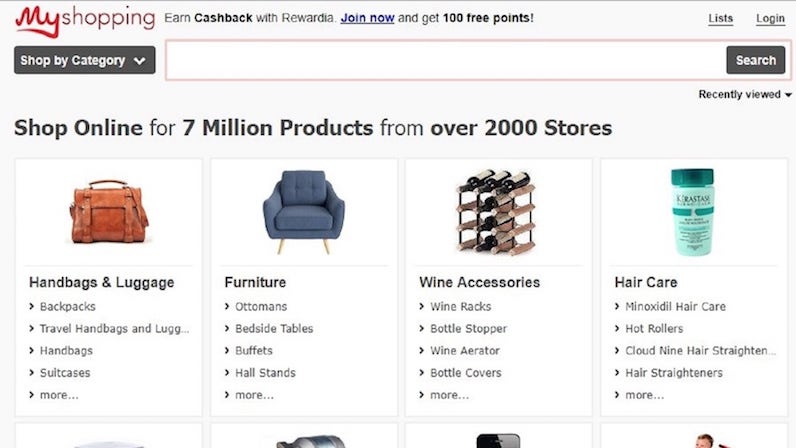
MyShopping Datafeed is a CSE available to Australia-based Shopify stores. The Shopify app is free and lists your products alongside more than 11 million others. Stores of all sizes, even merchants with more than 1,000 products, can use this app.
17. Idealo
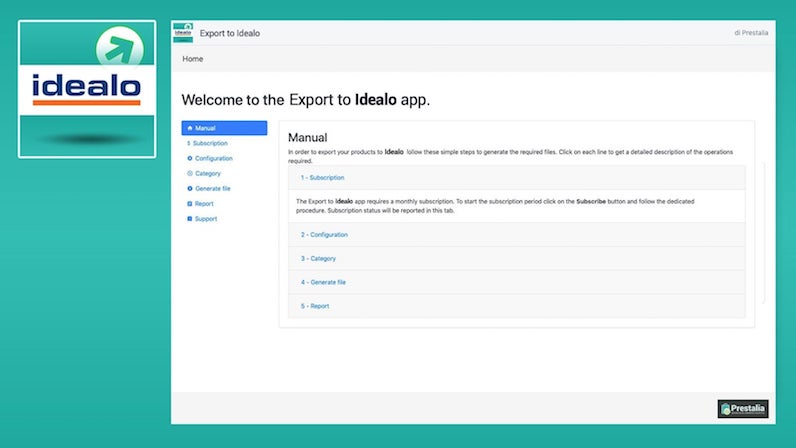
Idealo is a German CSE with a companion Shopify app. When you connect the Idealo Shopify app so it can generate a CSV file or data feed of all your products, it will then list those products on its site, according to the data you have in the backend of Shopify.
The cost of price comparison shopping engines
Most CSEs are going to charge you per click-through or per action. With pay-per-click, sellers pay a set fee or bid each time a potential customer clicks on that merchant’s link. ShopMania uses PPC for its pricing model.

In a pay-per-action model, retailers will pay a percentage of the value of a sale made as a result of being listed on the CSE. No one pricing model is a fit for all businesses, so choose the one that works best for you.
Unfortunately, not all price comparison engines are transparent about pricing information, so you’ll need to find out what the going rates are on each platform for your particular industry.
Getting products listed on price comparison websites
Most CSEs require retailers to submit a formatted product feed. This feed must meet a CSE-defined specification and should be updated frequently. The CSE uses scripts to parse and ingest the data from the feed, displaying the included information on results pages as appropriate.
Shopify merchants have several apps available that make submitting product feeds to CSEs easier and in some cases, automatic. Regardless of how a feed is created, smart merchants will work to optimize descriptions and product prices to get the most sales possible.
What is the best price comparison app?
The Shopify App Store offers a variety of price comparison apps, each with different features. While some connect with your store and list products on CSEs, others add product comparison features directly to your website. Some of the best include:
- Price Comparison by Vishal
- Prisync
- PriceMole
- Compare It!
- Product Compare
- Compare Products by Omega
- BeezUP
- Kudobuzz Multichannel
- SmartFeed Product Feed Manager
- Lengow
1. Price Comparison by Vishal
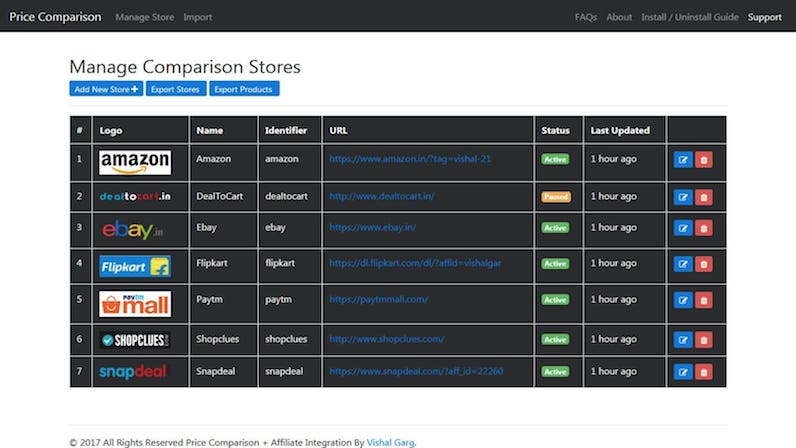
The Price Comparison By Vishal app pulls in competitor pricing and displays it on your Shopify site, letting you promote how low your prices are and how expensive the items are elsewhere. Though you don’t want users to click away from your site, this app is unique in that those click-throughs turn into earned affiliate sales—so it’s not a complete loss.
2. Prisync
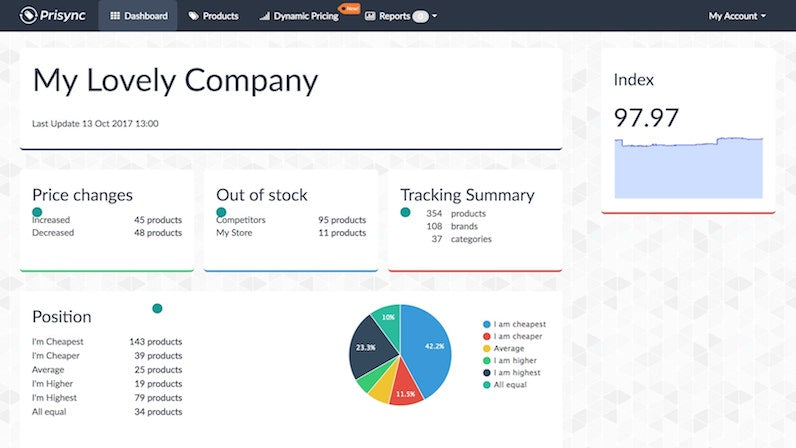
Prisync is a backend tool that lets Shopify store owners spy on competitor pricing. Adjust your own pricing strategy accordingly or use the app’s dynamic pricing feature to automatically change yours based on the competitive landscape. You can also see stock availability, set email notifications, and export data in Excel.
3. PriceMole
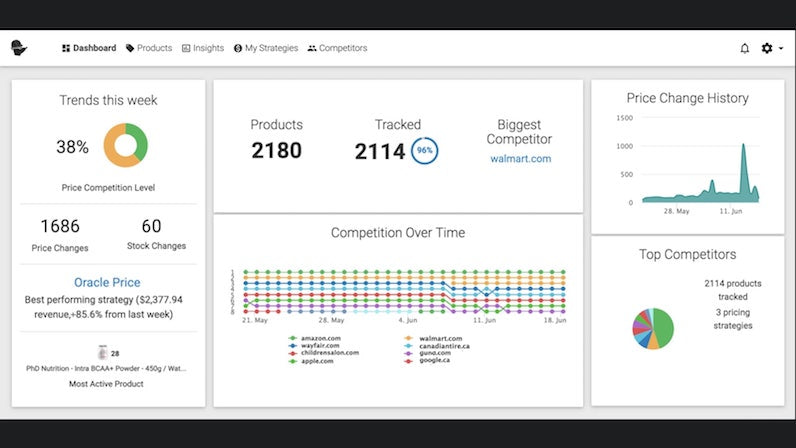
Similar to Prisync, PriceMole tracks competitor pricing to inform your strategy. It also tracks stock levels, has dynamic pricing, and includes email alerts.
4. Compare It!
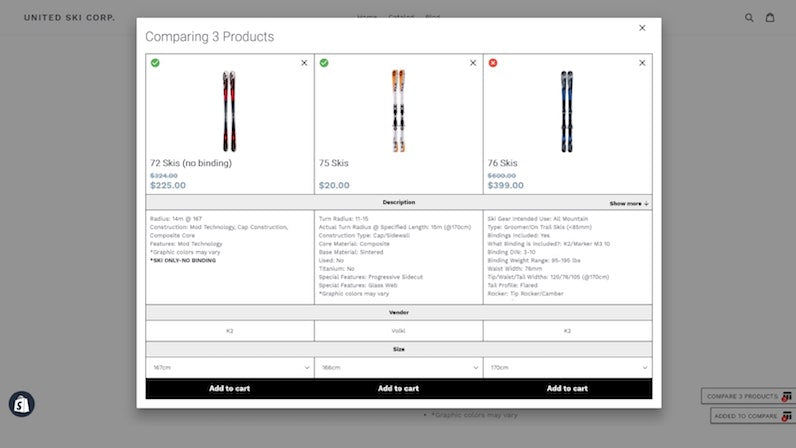
Compare It! displays a pop-up on your site that shows product comparisons for your own products. The pop-up is customizable, so you can change the colors, fields, and labels to match your ecommerce color palette. You can also move around where the pop-up is displayed on the page so you don’t distract from the shopping experience.
5. Product Compare
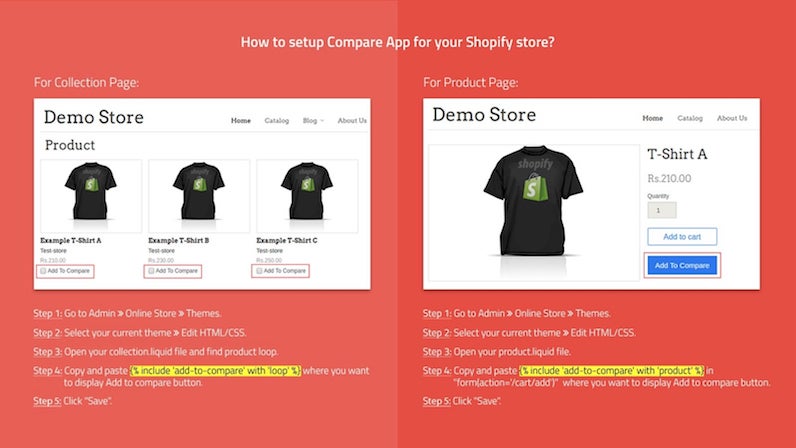
Like Compare It!, Product Compare lets you stack up your own products against each other. Product Compare also makes these lists shareable, so shoppers can send them to friends and family for their opinions. It also aids in product discovery, suggesting similar products to compare.
6. Compare Products by Omega

The Compare Products by Omega app is similar to Compare It! and Product Compare in that it helps customers put your products side by side to choose which is the best for them. Each product page has a detailed chart depicting price, ratings, stock level, and variants.
7. BeezUP
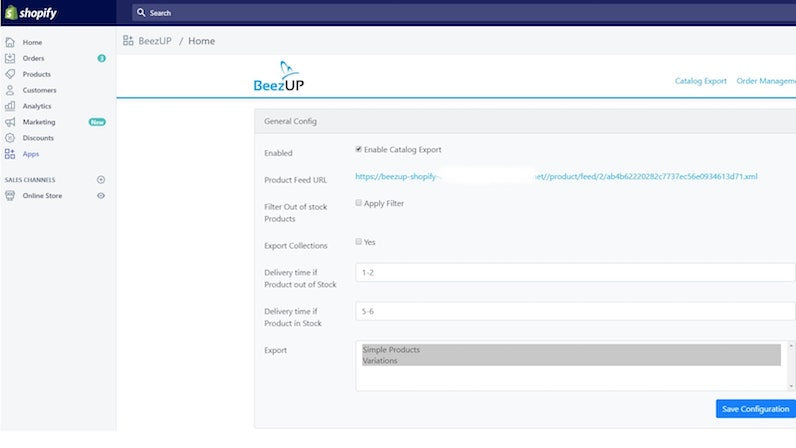
With BeezUP, Shopify owners can easily list products on CSEs and other third-party marketplaces, like Amazon, eBay, and Cdiscount. It automatically syncs stock levels, removing items when they’re sold out. You can also customize product information, pricing, and targeting.
8. Kudobuzz Multichannel
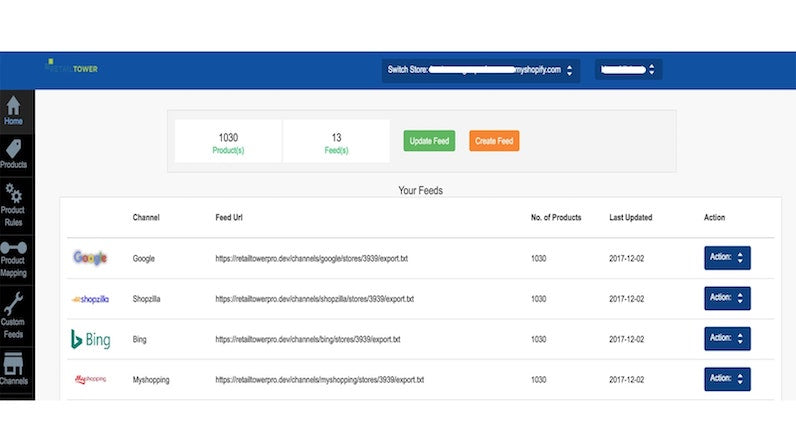
Kudobuzz Multichannel is similar to BeezUP in that it connects with your Shopify store and lists your products on multiple CSEs. Kudobuzz also comes with analytics reporting, so you can learn more about your products and audience.
9. SmartFeed Product Feed Manager
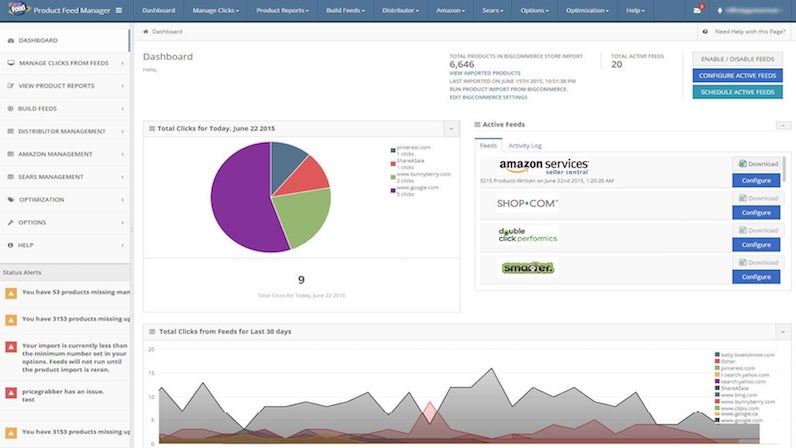
SmartFeed Product Feed Manager, like BeezUP and Kudobuzz, gets your products listed on CSEs and third-party marketplaces to increase visibility and sales. The app will get your products on sites like Amazon, Walmart, Jet, Rakuten, and Wish. You can also upgrade to get distributor management features, streamlining the order fulfillment process.
10. Lengow
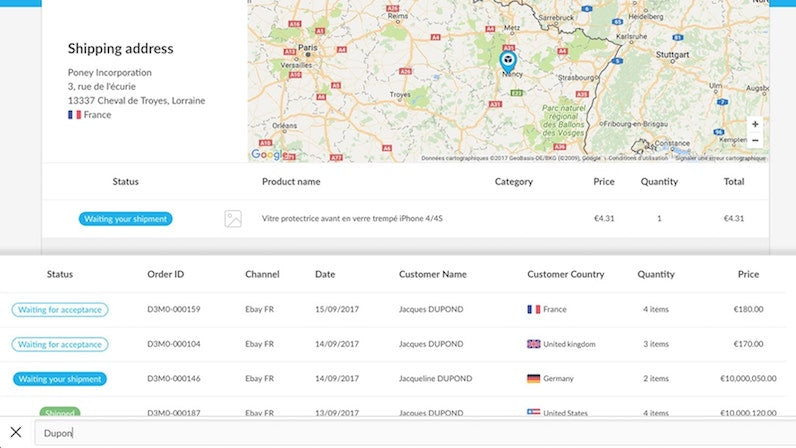
Another Shopify app to list your products on third-party CSEs and marketplaces is Lengow. Lengow also incorporates social commerce, affiliate platforms, and ad retargeting. The tool comes with analytics reporting so you can optimize product listings to increase sales.
What’s the best price comparison site?
The best price comparison site really boils down to your ecommerce strategy. Different retailers need different things. What are you selling? Who are you selling to? Where do those shoppers look to compare prices? And what specific features are they looking for in that product?
You also have budget considerations. While CSEs aren’t the most transparent or straightforward with pricing information, you can test a few and see which generates a better ROI. Then you can focus your efforts there.
Grow your business with price comparison sites
If you have a competitive price point and a quality product to boot, price comparison engines are an effective customer acquisition tool.
Whether you compare your own products to one another or put them up against the competition, CSEs can be a great way to ease buyer hesitation and instill confidence in their purchase.

